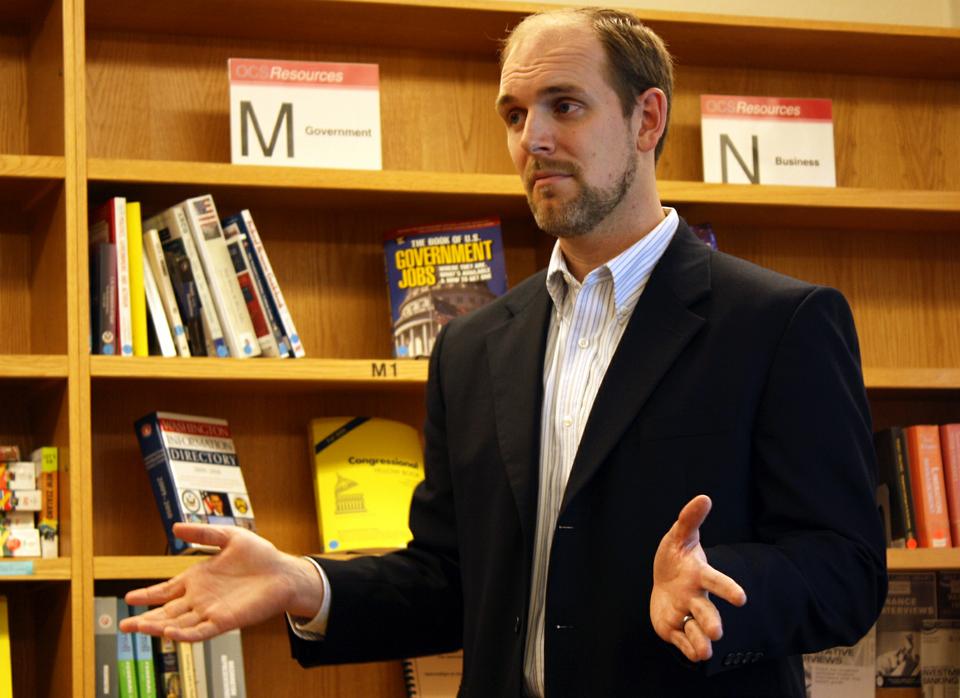
News
Summers Will Not Finish Semester of Teaching as Harvard Investigates Epstein Ties

News
Harvard College Students Report Favoring Divestment from Israel in HUA Survey

News
‘He Should Resign’: Harvard Undergrads Take Hard Line Against Summers Over Epstein Scandal

News
Harvard To Launch New Investigation Into Epstein’s Ties to Summers, Other University Affiliates

News
Harvard Students To Vote on Divestment From Israel in Inaugural HUA Election Survey
OCS Advises International Students on Jobs

About 20 undergraduate, graduate, and Extension School students gathered yesterday at a U.S. job-search workshop for international students, sponsored by the Office of Career Services.
The workshop was run by Dan Beaudry, previously a campus recruiter, who wrote a book called “Power Ties: The International Student’s Guide to Finding a Job in the United States.”
Recognizing the difficulty in securing work visa sponsorship—the reason that international students are often rejected from U.S. jobs—Beaudry emphasized the increased importance of networking for international students who are looking for American jobs.
Beaudry said that 80 percent of the jobs in the U.S. economy are never openly advertised, using the analogy of an iceberg, which typically has only a small portion of its body visibly showing above water. According to Beaudry, these hidden vacancies are often filled through a process called the Employer Referral Program, in which the companies rely on employers’ recommendations to find candidates suitable for certain positions.
“The person that is referred through the [Employer Referral Program] carries the implicit endorsement of someone that [the company] trusts,” Beaudry said.
Due to this characteristic of the U.S. job market, Beaudry said that it is not effective for international students to send their resumes to employers or to fill out online applications.
“It’s not an investment worthy of your time,” Beaudry said. “If you are not exactly the kind of person that they are looking for, you are not going to hear back.”
Instead, Beaudry encouraged students to reach out to hiring managers or build networks with other personnel who could help them get a job. The most effective approach, according to Beaudry, is to meet with people in relevant industries for “informational interviews,” where students can casually inquire into the nature of the work and present their merits.
Once international students build up their networks, it is important for them to be familiar with visa processes so that they can explain them to those in charge of hiring.
“They need to hear from you how easy it is before they know from Human Resources how hard it is,” Beaudry said.
Students attending the workshop responded positively to Beaudry’s presentation, surrounding him afterwards to talk and to purchase his book.
“He’s the only one [I’ve talked to] that knows exactly what happens to international students after we finish school,” said Claudia Garcia-Wagner, a Colombian student at the Extension School studying environmental management and a research assistant at the School for Public Health.
—Staff writer Heng Shao can be reached at shao@college.harvard.edu.
Want to keep up with breaking news? Subscribe to our email newsletter.
